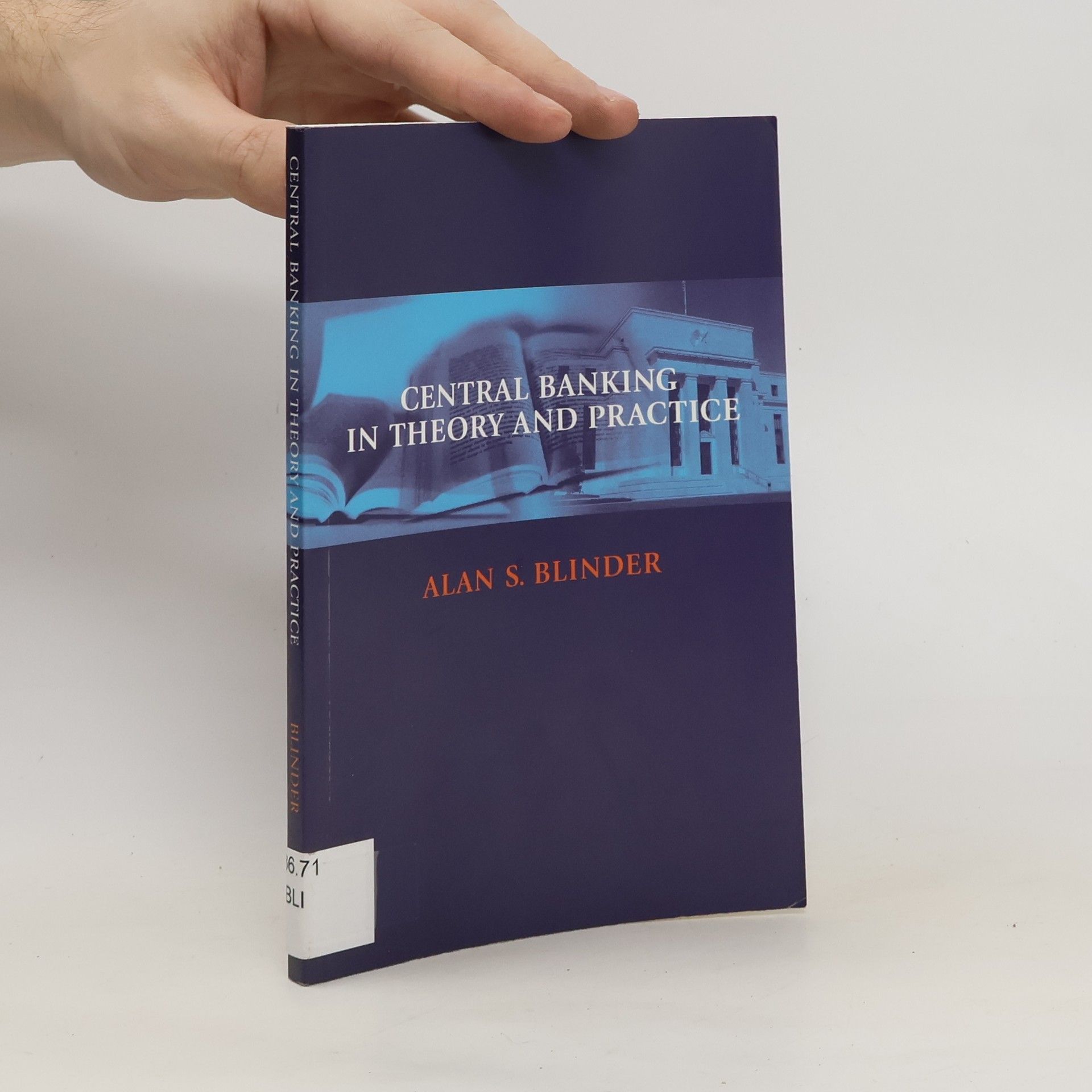Alan S. Blinder ofrece una perspectiva única como macroeconomista y exvicepresidente de la Reserva Federal. Analiza la política monetaria de manera accesible, abordando temas como la credibilidad del banco central y la independencia, desde su experiencia académica y práctica. Propone soluciones a problemas teóricos, como la neutralidad de la política monetaria.
Alan Blinder Book order (chronological)
Alan Stuart Blinder stands as a distinguished American economist, widely recognized among the world's most influential thinkers in the field. His work primarily focuses on economics and public affairs, earning him a reputation as one of the great economic minds of his generation. Blinder's expertise spans a broad spectrum of economic topics, making him a respected figure in both academic and governmental spheres. His analytical approach and profound understanding of economic principles significantly shape discussions on economic policy.






In this insightful work, Alan Blinder, a prominent economist and skilled writer, offers a comprehensive account of sixty years of U.S. monetary and fiscal policy. Covering twelve presidents from John F. Kennedy to Joe Biden and eight Federal Reserve chairs from William McChesney Martin to Jerome Powell, this narrative reveals an insider's perspective on macroeconomic policy that has rarely been shared. Blinder examines significant developments and long-term changes, detailing the interplay between monetary and fiscal policy through various economic cycles, including recessions and booms. The journey begins with Kennedy's New Frontier fiscal policy and extends to Biden's pandemic responses, highlighting key events such as the stagflation of the 1970s, the fight against inflation under Jimmy Carter and Paul Volcker, the emergence of Reaganomics, and the economic bubbles of the 2000s. The narrative progresses through recent history, addressing the financial crisis, the Great Recession, and monetary policy during COVID-19. This engaging and concise account is poised to become a classic, offering essential insights for those looking to understand the trajectory of the economy and its future direction.
This text remains a proven leader in the world of economics. Since introducing the aggregate supply/ aggregate demand model as a fundamental tool for learning economics over two decades ago, in this edition William J. Baumol and Alan S. Blinder continue their long tradition of equipping students with the knowledge and tools they need to apply modern economics to their world. Hallmark features include one of the strongest policy treatments on the market and a careful and in-depth focus on the most important economic tools students should retain after the course is over.
Central banking in theory and practice
- 108 pages
- 4 hours of reading
Alan S. Blinder offers the dual perspective of a leading academic macroeconomist who served a stint as Vice-Chairman of the Federal Reserve Board—one who practiced what he had long preached and then returned to academia to write about it. He tells central bankers how they might better incorporate academic knowledge and thinking into the conduct of monetary policy, and he tells scholars how they might reorient their research to be more attuned to reality and thus more useful to central bankers. Based on the 1996 Lionel Robbins Lectures, this readable book deals succinctly, in a nontechnical manner, with a wide variety of issues in monetary policy. The book also includes the author's suggested solution to an age-old problem in monetary what it means for monetary policy to be "neutral."
Microeconomics Economics Principles and Policy - Fourth Edition
- 603 pages
- 22 hours of reading
Economics
Principles and Policy
For the Third Edition, 2001 Nobel laureate Joseph Stiglitz joins forces with new co-author Carl Walsh, who brings both macroeconomic expertise and teaching savvy to the project. Together, Stiglitz and Walsh thoroughly integrate contemporary economics into the traditional curriculum. Since the publication of Economics, Second Edition, in 1997, the explosive development of information technologies has altered the economic landscape in important ways. In Economics, Third Edition, Stiglitz and Walsh embrace the information revolution as an opportunity to revitalize the presentation of economics by linking fundamental concepts and basic models to examples in the "new economy." Supplemented by powerful emedia offerings, outstanding ancillary resources, and comprehensive pedagogy, Economics, Third Edition, promises to be the most complete, authoritative principles package on the market.